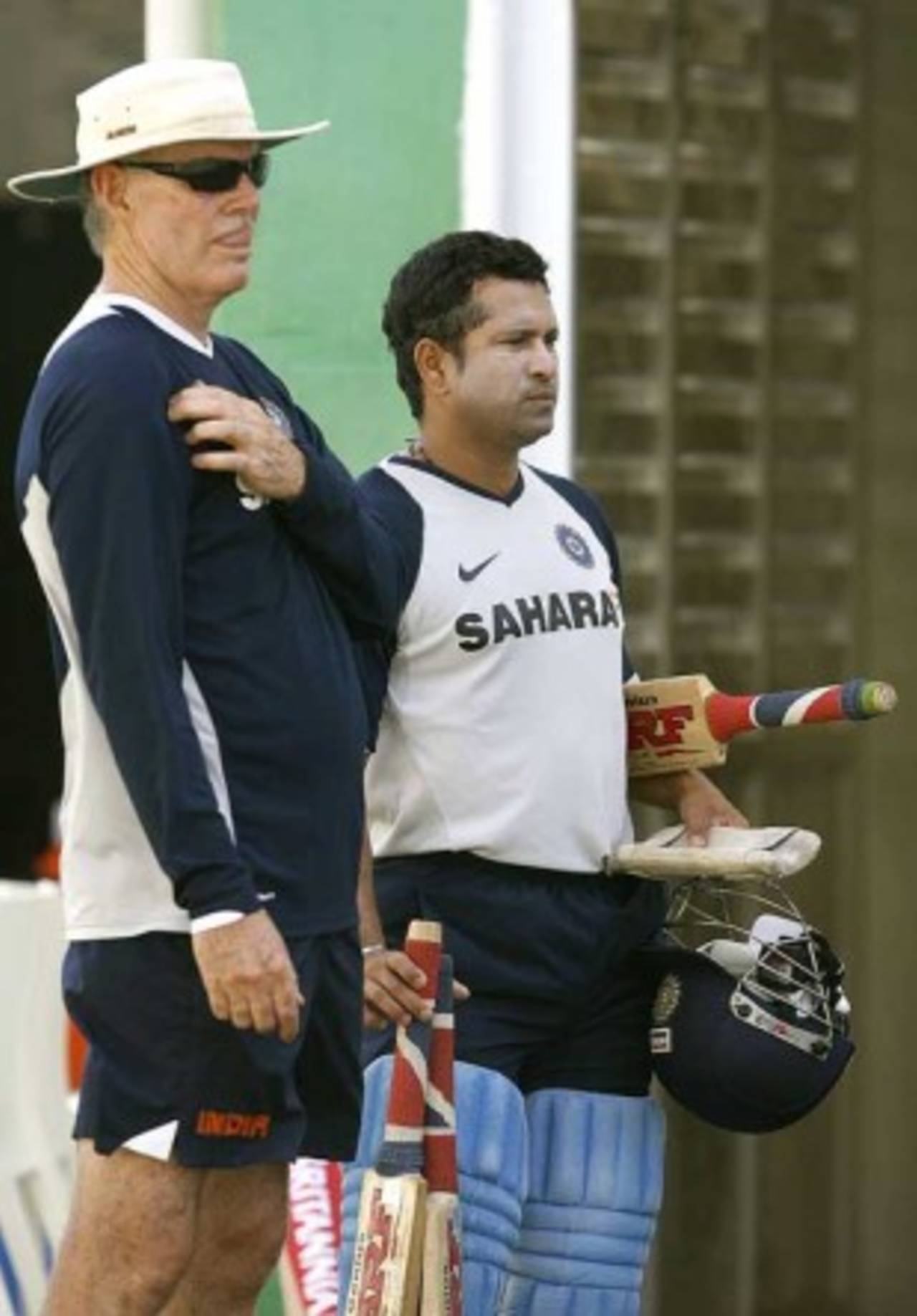Greg Chappell, the former Australia captain, has said in his new book that the biggest regret of his controversial three-year stint as India coach was his failure to communicate properly with
Sachin Tendulkar, with whom he had a strained relationship.
Chappell coached India from 2005 to 2007 and pushed hard to bring fresh faces into the Indian side, and tried to initiate changes in the batting line-up. His desire for change did not sit well with many of India's senior players though. He had a very public spat with then India captain, Sourav Ganguly, while the likes of Zaheer Khan, Virender Sehwag and Harbhajan Singh have all criticised his methods.
But it was his disagreement with Tendulkar over his position in the batting order in one-day cricket that he wishes he had handled differently.
"My biggest regret was falling out with Sachin over him batting at number four in the one-day team," PTI quotes Chappell as writing in his new autobiography, Fierce Focus. "It was a shame because he and I had some intense and beneficial talks together prior to that. My impatience to see improvement across the board was my undoing in the end.
"The mistakes I made were not particularly 'western' but the same kind of mistakes I had made as a captain in my playing days. I didn't communicate my plans well enough to the senior players. I should have let guys like Tendulkar, (VVS) Laxman and (Virender) Sehwag know that although I was an agent of change, they were still part of our Test future.
Chappell has also admitted that he was at times abrupt in his dealings with some of the players. "Once in South Africa, I called in Sachin and Sehwag to ask more of them, I could tell by the look on their faces that they were affronted. Later [Rahul] Dravid, who was in the room, said, 'Greg, they've never been spoken to like that before'."
One thing his time as coach did help him understand was the huge amount of pressure Indian cricketers are under, especially Tendulkar. "A glimpse of them was a life-changing event... We were playing an unrelenting amount of cricket to satisfy the demand, at least 50% more than Australia were playing and the pressure was beyond belief.
"Nobody was carrying that pressure more than Sachin. Not even Don Bradman carried expectations like this, and Sachin had been bearing it since 1989.
"When the team travelled, he would snap on his headphones, not look sideways, and shut it all out. There was a constant frenzy trying to get in at him. The energy it would have taken for him to let that kind of excitement in would have drained him dry."
Chappell said he had encouraged Tendulkar to take a day off from training but Tendulkar said that was not a feasible option given the fans' expectations of him. "If he didn't train and then performed badly, he'd have been blamed. People would notice. And there was no relief for him going out onto the streets, either. He just couldn't get any rest."
The book also reveals that prior to Sharad Pawar taking over as BCCI president in 2006, Chappell had a somewhat uncomfortable relationship with the board, whom he claims tried to make life difficult for him, his family and his staff by not paying their bills and wages for months.
"Throughout our living arrangements at the Taj Westend in Bangalore had always seemed tenuous. The BCCI was usually late in paying our bills, and Judy (Chappell's wife), alone in Bangalore for much of the time I was touring, often didn't know whether my employer was looking after its commitments or not.
"The wages for me, Ian Frazer and other support staff were sometimes paid months late. I saw it more as back channel attempts to make life uncomfortable and push towards throwing it in. Things improved markedly under the [Sharad] Pawar regime."
